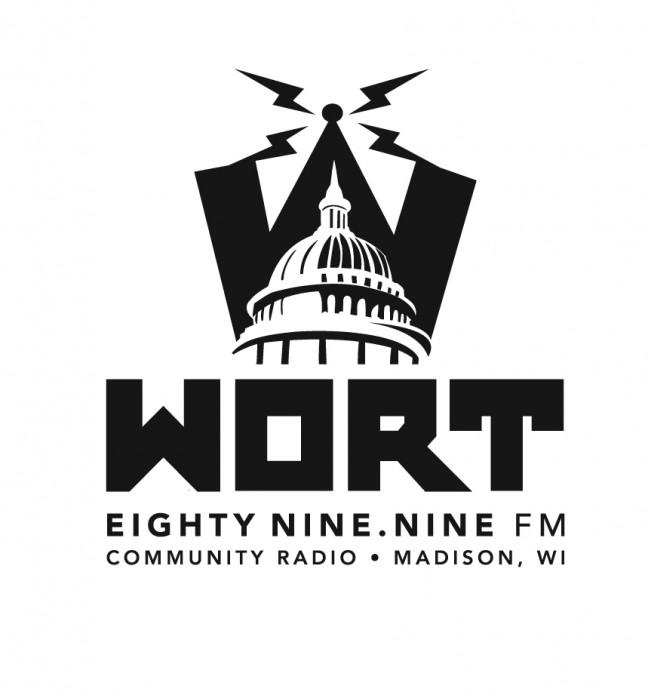Most give little thought to the typical commercial radio station, broken up by advertising and confined to a narrow genre. The onslaught of ad interruptions instantaneously directs listeners to the volume dial.
Madison’s WORT 89.9 FM, however, has always strayed away from a world bound by commercial interest. The community radio station will celebrate an impressive 40 years of bringing their sound and principles to airwaves in early December.
Without the incessant interruption of advertising, WORT boasts a continuous feed suiting the its listeners’ diverse interests. The station delivers an incredible assortment of music, including live features of local bands and also several programs dedicated to news and culture.
“We’re showing you all the different possibilities of things that are out there,” WORT’s operations coordinator Norman Stockwell said. “You, as a consumer of culture, can decide where you want to go.”
WORT strays from the conventional commercial path in terms of financial support. Instead of advertising, they rely on the Corporation for Public Broadcasting, sponsored events, local business underwriting and predominantly listener support to sustain their budget. While a risky endeavor, the sentiment of community fidelity has not only kept WORT afloat, but soaring past its expected peak.
“I just fell in love with radio,” founder David Devereaux-Weber said. “I wanted to form a radio station where people from the community had input on what was played.”
While it prioritizes the needs of local listeners, WORT isn’t completely unfamiliar to the national spotlight. Stockwell said The New York Times promptly covered Gary Hart’s re-entrance into the 1988 presidential race after an announcement by Hart’s campaign manager during a WORT call-in show.
Within the confines of their station brand, commercial radio lacks the ability to comprehensively serve the interests of a community. This very notion drives WORT’s mission in adhering to an inclusive experience, “committed to radio programming with a human perspective” and “respecting all peoples and their environments,” as their mission statement reads.
“We bring people information about issues they’re not going to hear anywhere else,” Stockwell said. “They hear the voices of the people at the bottom affected by these policies — instead of reporting on the press release coming down from the top.”
Refusing to quiver before the presumably threatening presence of the Internet, WORT has utilized it to its fullest advantage. While their primary focus is to sift and broadcast music and news particularly relevant to Madison, they are able to reach international audiences as well.
“Our focus as a community radio station is predominantly local,” Stockwell said. “As we’ve grown and gotten on the Internet, obviously we have more listeners elsewhere.”
But despite its use of the Internet to reach global audiences, the looming presence of the Web has not gone without concern. In effect, the listening demographic of community radio has aged.
But there is strength in numbers. Devereaux-Weber said while appealing to younger audiences proves difficult with facilitated access to music and news online, social media and joining forces with commercial radio may be effective in combatting potential danger.
“They’re afraid of us and we’re afraid of them,” Devereaux-Weber said. “We should cross-pollinate better.”
Through the promotion — not advertising — of community radio programs and calling upon social media to issue its spread, WORT and other stations could face an evolving listenership. While both can be achieved free of charge, it requires an imperative effort. Devereaux-Weber calls upon the community to listen to WORT and begin a dialogue.
The approximately hour-long news programs also provides another challenge, as specific news clips are easily accessible online. Devereaux-Weber says WORT should attempt to step into podcasting to break up individual news clips available for people who want them — similar to the structure of social media.
But despite challenges in the more digitized age, WORT’s heart remains with its volunteer hosts, another clear distinction between community and commercial radio. While administrative staff receive reimbursement for management, hosts receive no money.
Hosts seize the opportunity to exhibit their passions with the community, Stockwell said, and are inspired by this alone.
While the media climate may be changing, for Devereaux-Weber, it’s the passionate hosts that can provide the true impetus for the future of community radio.
“If you can create this community effort for the greater good, people are willing to do that,” Devereaux-Weber said. “Motivate people with the joy of doing that.”


